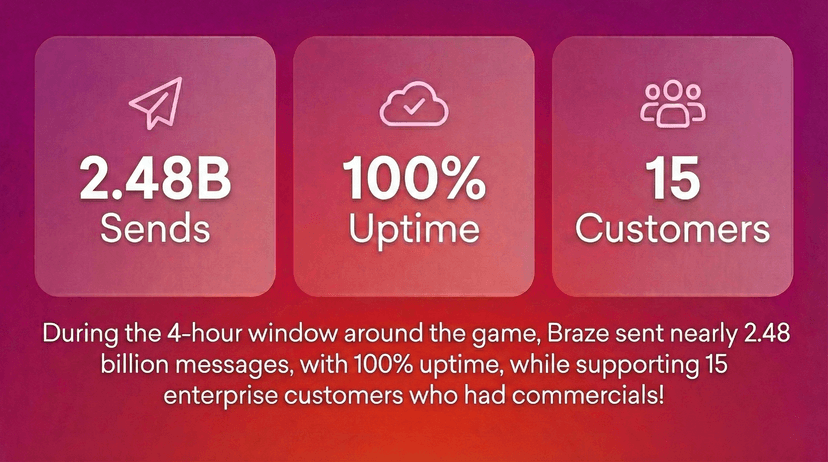6 Things to Look for in a Best-in-Class Mobile Marketing Platform
Published on May 15, 2020/Last edited on May 15, 2020/4 min read


Mary Kearl
WriterWith 2 million apps in Apple's App Store alone, more than half of all emails (between 55% to 65%) read on mobile devices, and individuals receiving up to nearly 50 push notifications per day, mobile provides a powerful platform for brands to engage directly with customers at times when they're primed to read, click, and take action.
It should come as no surprise then that since 2015, mobile marketing as a share of overall marketing budgets has increased 320%.
With mobile marketing platforms being a key resource companies invest in, here are the top six factors to consider when evaluating the mobile-related aspects of different customer engagement platforms.
Mobile Marketing Platform Checklist: 6 Factors That Matter the Most
What separates a great mobile marketing platform from the rest? It should be packed with these key features that enable your company to deliver best-in-class mobile marketing campaigns that resonate with each and every customer and drive long-term engagement, including:
Support for creating, testing, sending, and optimizing the most popular types of mobile marketing campaigns:
- Mobile app push notifications
- Mobile web push notifications
- Mobile email marketing
- In-app messaging
- In-app News Feed
- SMS campaigns (also know as text message marketing)
Segmentation: Instead of mass one-size-fits-all messaging, your platform should allow you to send tailored campaigns to cohorts of individuals based on common customer attributes, such as customers who recently downloaded your brand's app, completed a purchase, or created a profile.
Personalization: Instead of addressing customers in a generic way (such as "Dear valued customer"), your platform should allow you to address them individually, beyond just their first name. It should enable you to include other relevant details in your outreach, such as the year they became a member or their loyalty rewards points balance.
Cross-channel support: Mobile marketing should be one important component of an overall marketing strategy that includes cross-channel communication, engaging with customers wherever they are, whether that's via mobile, your website, or in-person experiences.
Real-time data support and automations: For timely matters, following up with customers in-the-moment is a more effective approach than delayed outreach, but not all platforms support real-time automations.
Mobile marketing analytics: Having both a data strategy and mobile marketing analytics in place are crucial to assessing the impact of any mobile marketing effort, yet most companies have challenges accessing, analyzing, and acting on their data. That's why it's critical to invest in a platform that offers robust analytics.
When Mobile Marketing Platforms Fail
Google has mapped the retail customer journey and, based on this analysis, shared two key findings. First, he majority of shoppers (60%) start shopping on one type of device and finish on another. Similarly, nearly all (82%) of shoppers review their smartphone before making a purchase in store. That's not a trend that's unique to retail customers. This is now the new standard. The modern customer journey is filled with cross-channel experiences that often include a mix of in-person and online touchpoints.
Mobile marketing platforms fail when they don't take this new reality into consideration and recognize that the customers engaging with your company's mobile app, reading your email marketing campaigns on their smartphones, or receiving mobile web push notifications or SMS campaigns may also be engaging with your brand on other channels, such as your company's physical locations, website, customer loyalty program, or streaming apps.
Next Steps
Customer engagement doesn't live in one single channel, and neither should marketing platforms. That's why mobile marketing platforms need to live within part of a larger ecosystem of tools for creating, deploying, testing, and measuring the impact of cross-channel campaigns (including mobile marketing campaigns), known as vertical engagement stacks. To learn more, download our Vertical Engagement Roundup.
Be Absolutely Engaging.™
Sign up for regular updates from Braze.
Related Content
 Article16 min read
Article16 min readChoosing the best AI decisioning platforms for 2026 (across industries)
February 12, 2026 Article3 min read
Article3 min read2.4+ billion sends, zero fumbles: How Braze supports leading brands during the big game
February 09, 2026 Article4 min read
Article4 min readBeyond Predictions: Why Your Personalization Strategy Needs an AI Decisioning Agent
February 09, 2026